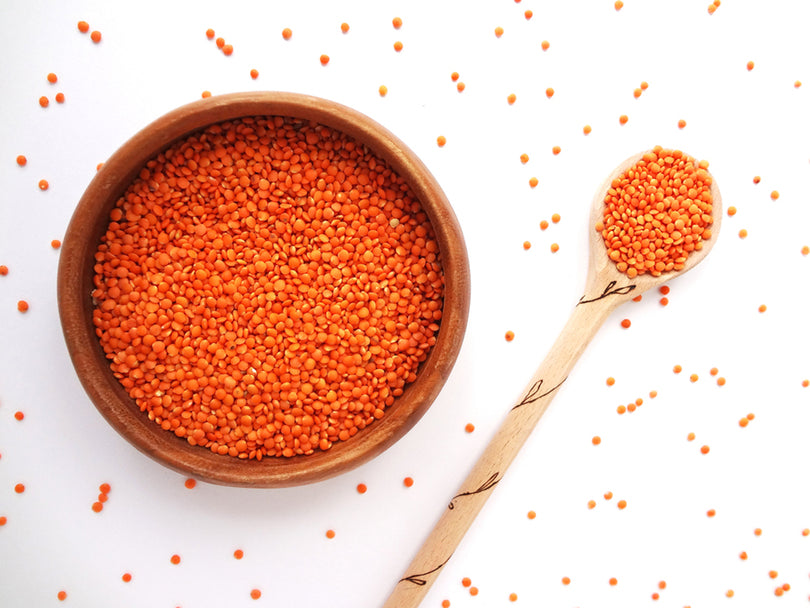What You Should Eat (And Avoid) During Your Period


Some women get through their period with hardly any symptoms, while others can struggle with menstrual cramps, pains, headaches and even nausea.
Another common symptom of the menstrual cycle is bloating, and we all know about the potential mood swings that can happen at this time of the month!
There’s no need to suffer these symptoms each month with no relief in sight.
Find Out:
- Foods To Eat During Your Period
- Foods To Avoid During Your Period
- Should You Exercise During Your Period?
- Is It Normal To Feel Hungry Just Before Your Period?
Here are some small changes you can make to your diet during your period that can help to reduce the severity of the symptoms.
Foods to eat during your period
Eating foods like eggs, salmon and spinach that are high in tryptophan, an essential amino acid used in hormone productions, may help to increase serotonin levels. This can help balance out some of the uncomfortable symptoms of PMS.
You also need to ensure you’re getting enough iron to compensate for any lost through bleeding.
While you may feel like reaching for a whole chocolate mud cake or a tub of ice cream, if you choose some of these foods instead you may find you feel a little better.

Salmon
Salmon is rich in vitamin b12 and Omega-3 fatty acids. These nutrients have anti-inflammatory properties which can help reduce cramping pains.
If you are vegetarian or just don’t like fish, other options include walnuts, flaxseeds or avocado.
Baked salmon and asparagus is a great dish to provide the nutrients your body craves at this time of the month.
Spinach and broccoli
Spinach and broccoli are high in iron, rich and fibre, and high in magnesium. You can steam them, use them in a stir fry, make a salad, soup or green smoothie.
Magnesium and potassium in leafy greens can help reduce symptoms like cramping.
Replacing iron by eating greens can also help you to feel less fatigued, and the high vitamin C content will help iron to be absorbed into the body.
Chocolate
Now before you get too excited, the type of chocolate that you choose does matter!
For the best dose of antioxidants and magnesium, you need to choose dark chocolate with a high cacao content.
Or better yet, make this avocado chocolate mousse for a hit of potassium and fatty acids!
Wholegrains
Whole grains are an excellent source of magnesium, as well as important B and E vitamins. Plus, whole grains will keep you full for longer.
B vitamins play a role in serotonin production, a hormone which can help to moderate your appetite.

Yoghurt
Greek yoghurt is one of my favourite foods, and it is high in calcium. Live cultures in yoghurt can help to promote healthy digestion too.
For those ladies who follow a vegan lifestyle, almonds or any other food that’s high in calcium will provide some benefits.
Bananas
Bananas are high in potassium, vitamin B6 and other vitamins, plus they are high in fibre which can help with your digestive system.
Eggs
Eggs are so healthy — the yolk contains iron, fat-soluble vitamins, essential fatty acids and protein.
However, hard-boiled eggs may contribute to gas and bloating for those with sensitive stomachs.
Eggs are great for breakfast or dinner — this spinach mushroom frittata is a great dinner option, and you can make extra to take for lunch the next day!

Chamomile
Chamomile tea is a calming tea that you can have at any time of day to relax your nervous system and aid with digestion.
Foods to avoid during your period
Just as some foods can help to alleviate PMS symptoms, there are other foods that can aggravate them.
Avoid caffeine
Caffeine can increase your blood pressure and heart rate, which can make PMS symptoms worse.
If you are a regular coffee drinker, consider switching for some coffee substitutes during that week of the month.
Go easy on the salt
Salt can increase water retention in your body and may contribute to bloating. Avoid salty and highly processed foods and choose easy healthy snacks instead.
Avoid processed foods
This is good advice all the time, but especially when you have your period. Foods that are high in sugar or high in unhealthy fats can affect your natural hormone balance.
If you are craving something sweet, try eating fruit or try a healthy dessert like this chocolate mug cake.

Should you exercise during your period?
As a general rule, I would recommend that you exercise through your period, as long as your symptoms allow it.
Exercise can help to boost endorphins (including serotonin), which helps with maintaining a positive mood. Take time to listen to your body and adjust your training according to how you feel.
Is it normal to feel extra hungry just before your period starts?
Around three-quarters of all women experience ‘pre-menstrual syndrome’ or PMS. For some women, this does not affect their daily life, but for others, it can be more disruptive.
Right before your period starts, your hormones go through a cyclical change as progesterone levels rise. This can cause bloating, increased hunger, headaches or mood fluctuations.
As your hormones go through this natural cycle, serotonin (a hormone involved in wellbeing) levels can fluctuate too, contributing to the typical mood swings and increased appetite that can occur right before your period.
This is all a perfectly normal part of your cycle!
Follow a healthy lifestyle to feel your best
The key recommendation for foods to eat during your period is that you should choose plenty of fruit and veg, whole grains and high-quality protein. Stay away from highly processed foods, including cakes, sweets, fried or fatty foods.
Choosing foods that are rich in nutrients and have a high fibre content will help you to feel your best at this time, soothing your digestive system and replacing any nutrients lost from menstrual bleeding.
While you may not feel like it, try to eat regularly to keep your energy levels up. Skipping a meal can leave you feeling nauseous or tired.
My final tip is to make sure you drink enough water! Replacing fluids and staying hydrated can help to minimise some of the uncomfortable symptoms you may experience.
Choosing whole foods at any time of the month will help you feel better
Your body is amazing, and as you learn more about how your body responds to different foods you will learn how to make healthy food choices that help you to feel better at any time of the month.
* Disclaimer: This blog post is not intended to replace the advice of a medical professional. The above information should not be used to diagnose, treat, or prevent any disease or medical condition. Please consult your doctor before making any changes to your diet, sleep methods, daily activity, or fitness routine. Sweat assumes no responsibility for any personal injury or damage sustained by any recommendations, opinions, or advice given in this article.




<#= c.user.username #><#= moment(c.created_at * 1000).fromNow() #>
<#= c.html_body #> <# if (c.images) { #>
<# } #>